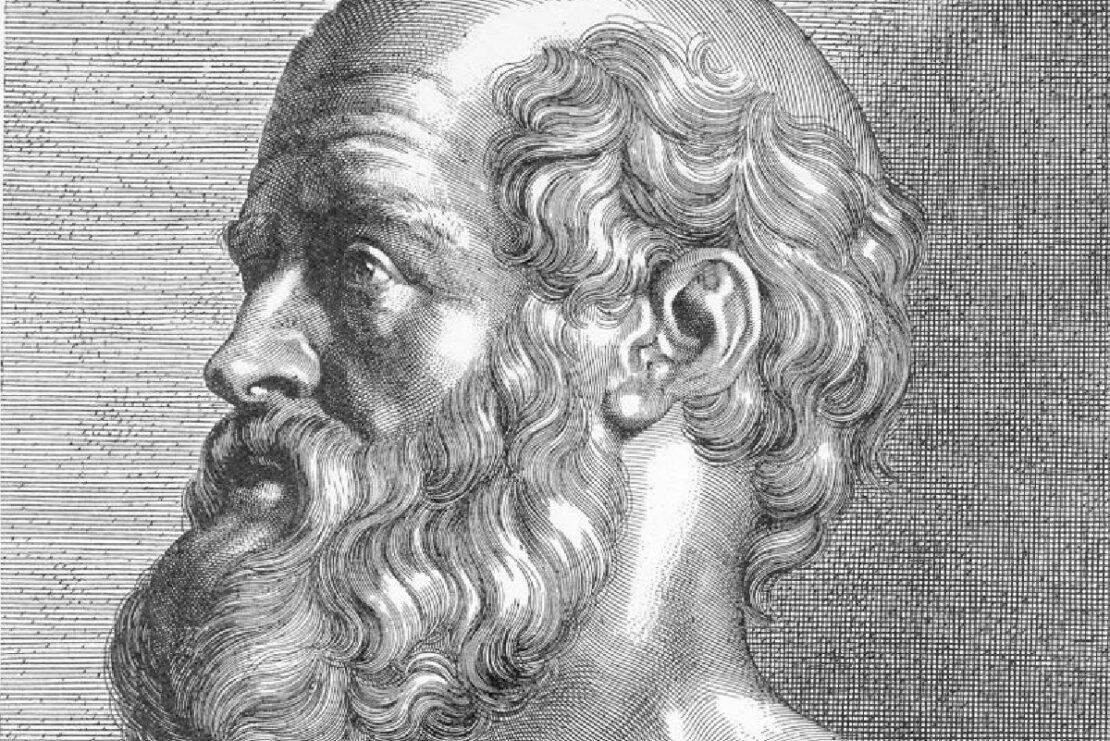
The Father of Medicine: Was Hippocrates an Herbalist?
“Where there is love for mankind, there is love for art of healing.” – Hippocrates
Considered the father of medicine, Hippocrates was a renowned ancient Greek physician and teacher born on the island of Kos in the Aegean Sea. He lived during the Classical Period of ancient Greece, which was a time marked by a strong Athenian democracy and developments in medicine, philosophy, art, architecture, and theater. The ancient Greek empire was flourishing and a lot of what we know about ancient Greece comes from this period of innovation. Surrounded by these democratic ideals and the flow of creativity, trade, and wealth, Hippocrates contributed significantly to the changing landscape of medicine. While we know him as the father of medicine today, Hippocrates may also have played an important role as an herbalist. Let’s explore how he may have been both a renowned physician as the father of medicine and a celebrated herbalist in his day.
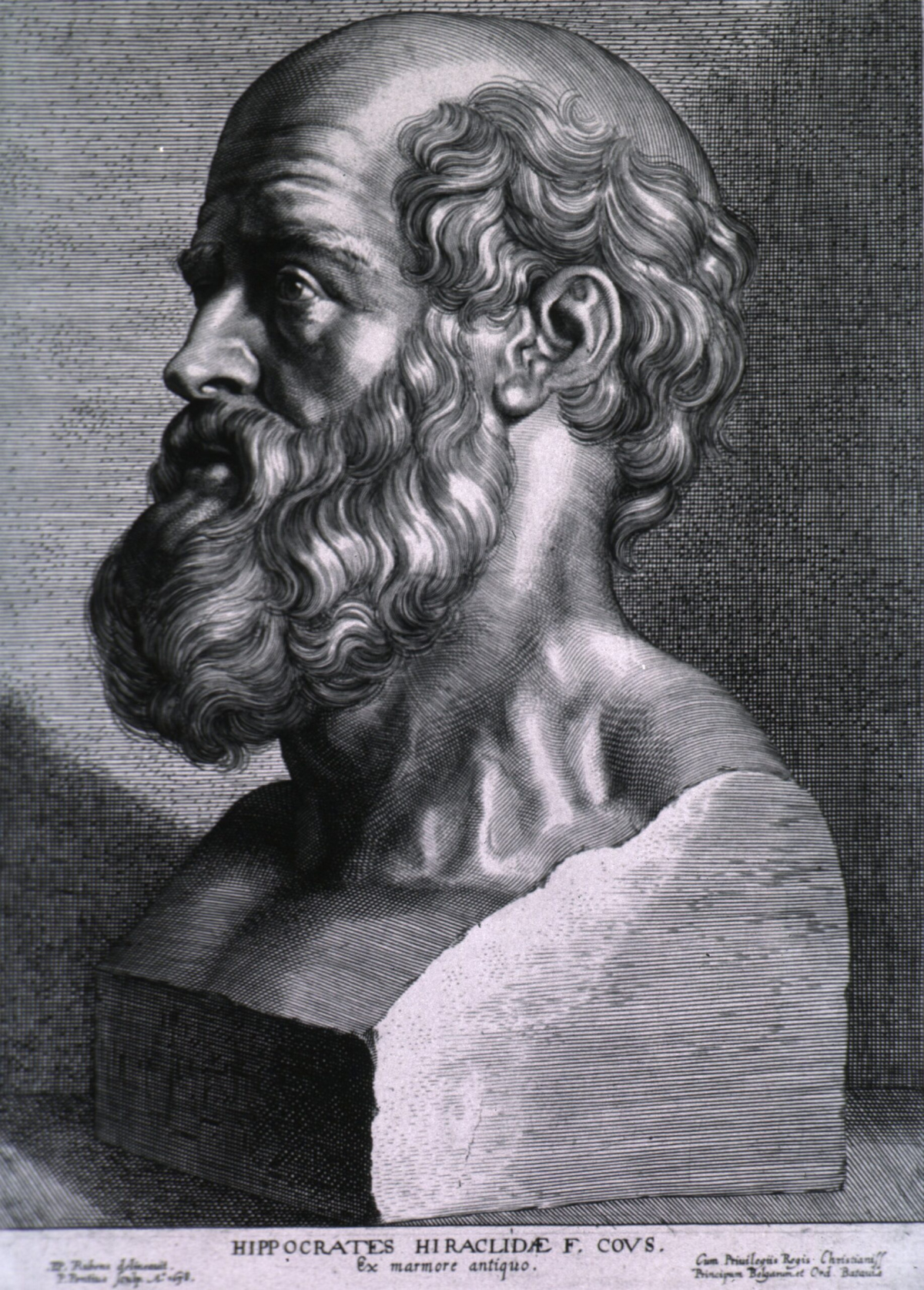
Who was Hippocrates?
To begin our inquiry exploring if Hippocrates was an herbalist, let’s start with learning what we know about his life from a variety of ancient sources. Hippocrates (460 – c. 370 BCE) was the son of Heraclides and Praxitela and grew up in a priestly and wealthy island community. His father, Heraclides, and grandfather, Hippocrates I, were both physicians and temple priests who provided Hippocrates with a solid foundation in medicine from a young age. Legend marks him as the 18th generation descendant of Asclepius, the demi-god of medicine who was the son of Apollo, the god of healing and the sun (Budge, 1978). This convenient lineage may also be attributed to Hippocrates’ professional name, Hippocrates the Asclepiad, which meant “descendant of Asclepius,” a title also related to his work in the Asclepion of Kos, where he was trained (Martí-Ibáñez, 1961). Asclepions were healing temples dedicated to the god Asclepius and were located throughout the ancient Greek empire to treat the sick, wounded, or weary.
After his thorough education, Hippocrates reportedly traveled for years throughout Greece for additional hands-on training during which he collected a wealth of information about plants, regional and cultural differences, effects of the environment and climate on health, and the various diseases suffered by people. Upon his return to the island, he began his teaching career at the Hippocratic school of medicine on Kos.
In his personal life, Hippocrates married a woman whose name may have been Doriana. They had two sons, Thessalus and Draco, and a daughter whose name remains unknown. His sons also became physicians, as well as his son-in-law Polybus. Hippocrates lived to an impressive old age for his era—approximately 90 years, and was buried near Larissa, a city in central Greece where a memorial can be visited in his honor. On Kos, remnants of an Asclepion can be visited, as well as the Tree of Hippocrates, a 500-year-old plane tree (Platanus orientalis) that may be a descendant of the tree that he had taught medicine under. Also worth a visit is the Hippocrates Garden Cultural Center, which offers educational programs about his medical achievements and an exact replica of an ancient Greek settlement that Hippocrates lived in.
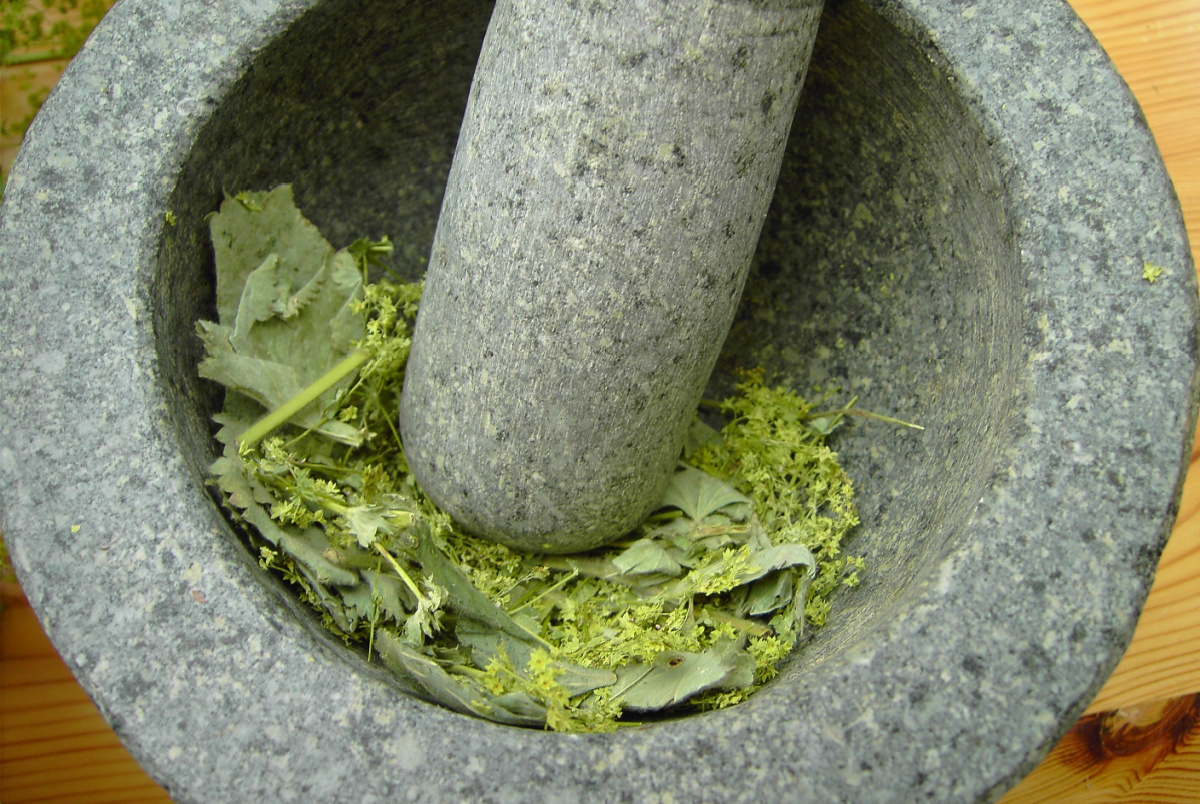
Was Hippocrates an Herbalist?
“Nature is sufficient in everything for everyone.” – Hippocrates
According to the Merriam-Webster Dictionary, an herbalist is “a person who practices healing by the use of herbs” and “a person who collects or grows herbs” (Merriam-Webster.com, n.d.) Herbalists apply both the art and science of plants to promote health. They have a special and personal relationship working with nature and their technique can vary from medical-scientific herbalism to traditional herbalism. Each approach provides a different perspective on the power of nature and our relationship to the plant world. Based on our modern definition of an herbalist, let’s explore three reasons why Hippocrates, the father of medicine, can also be celebrated as an ancient herbalist.
Reason #1: Scientific Inquiry
As the father of medicine, Hippocrates is credited for ushering in rational medicine and scientific explanations to establish fundamental principles of health and disease. His medical practice focused on a comprehensive understanding of an individual’s condition, much like herbalists do today, and he applied a diagnostic system to treat patients based on their individual needs. Traditionally, sickness had been attributed to a god’s wrath or supernatural forces that could not be explained or controlled, and treatments involved ceremonies and rituals with specific prayers and self-purification (Evans, 2015). Hippocrates’ work, which combined natural observations, logical reasoning, and understanding the healing power of nature, marked an important shift that separated medicine from religion.
A major accomplishment attributed to Hippocrates and his teachings is the Hippocratic Corpus, a collection of approximately sixty works describing medical conditions, case histories, theories of disease, and other related topics, written over the span of 700 years. Most scholars agree that Hippocrates unlikely wrote all or any of the texts, and which texts he did write are still under debate. Nonetheless, his influence on the texts is undisputed given that the collection is named after him. The most significant texts from this collection include On Ancient Medicine, On the Sacred Disease, On Airs, Waters, and Places, and The Hippocratic Oath. In these texts, “Hippocratic practitioners documented the use of local plants and simple plant preparations to treat their patients, and their diagnostic and treatment focus was not only on clinical observation and rationality, but also on the idea that balance is the cornerstone of health” (Evans, 2015, p. 6). Similar to studying herbal plants today, the practice of medicine in Greek antiquity was complex and involved understanding how to strengthen, nourish, and balance the body during sickness. It also required a commitment by the patient to take responsibility for their health and fulfill the prescribed recommendations.
Regarding how ancient Greek physicians learned medicine, intensive study of the natural world was required. Like herbalists today, the study of herbal plants in Greek antiquity required years of in-depth practice to comprehend the complexity of both the human body and the effects of the plants. Hippocrates traveled to numerous cities to gain knowledge from other physicians and different natural environments. He also practiced as a traveling physician using remedies with herbs that could be locally sourced (Touwaide & Appetiti, 2014). The art of medicine, according to Hippocrates, “can be compared to the growing of plants.” He explained that “our natural aptitude is the soil; the instruction our teachers give us is in the seeds; our basic education is the planting of the seeds at the right time; our place of study is the nutrients received by the seedlings from the surrounding air; [and] our hard work is the tending of the plants”(McKeown, 2017, p. 20). Commitment and time, he argued, ensured strong growth.. As a “kind, dignified, old country doctor,” Hippocrates was known for his careful and gentle approach to medicine (Martí-Ibáñez, 1961). Comparing the process of becoming a physician with the growth of a plant was both appropriate and demonstrative of his dedication to his practice.
Based on the surviving written work of many ancient physicians, we can begin to piece together the discourse surrounding medical and philosophical theories throughout the ancient Mediterranean region. Understanding how these two bodies−human and plant−interacted could unlock the potential for healing, and it was through this innovative inquiry and in-depth study that Hippocrates greatly learned about healing plants.
This leads us to reason #2 that Hippocrates was an herbalist.
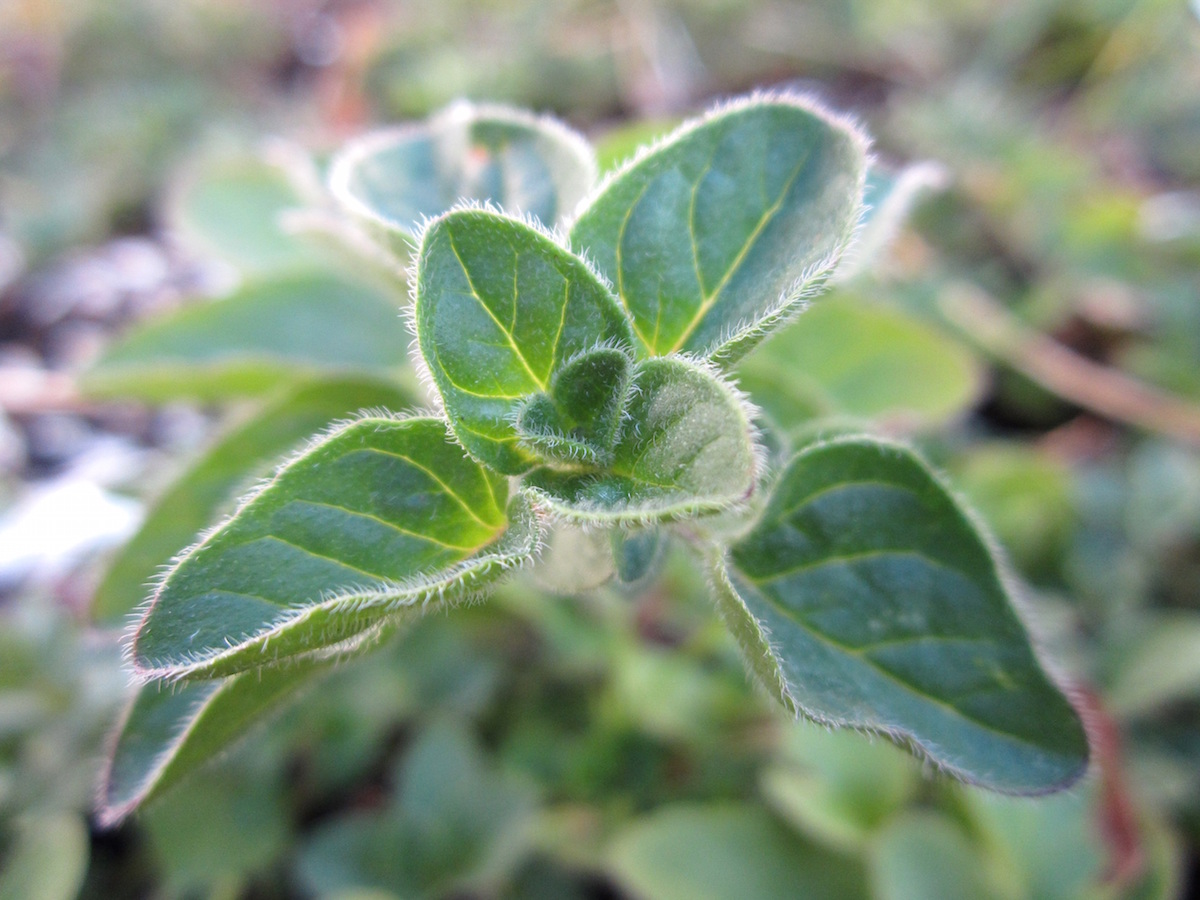
Reason #2: Healing by use of Herbs
Ancient Greek physicians regularly used herbs in their medical practice. Hippocrates, the father of medicine, and the authors in the Hippocratic Corpus provided more than 1,500 herbal remedies and described physiological actions for 300 plants. Approximately 40 percent of these plant uses came from only 44 plants, including sage (Salvia spp.), oregano (Origanum spp.), rue (Ruta graveolens), and bay laurel (Laurus nobilis) (Touwaide & Appetiti 2014). Many of these herbal applications were for women’s health and gynecological conditions (Evans, 2015). Unfortunately, this information about plants was not neatly organized into a materia medica, listing herbal actions, flavors, energetics, and uses of each plant, as we are familiar with today. Nonetheless, the descriptions and recipes provide important indications on how the plants were understood and how they were applied to the body. Especially interesting are the various delivery forms that ancient physicians applied. These included infusions, decoctions, foods, pills, ointments, gargles, plasters, powders, enemas, pessaries, fumigations, and inhalations, among other internal and external applications. Let’s explore some ancient recipes to get a sense of Greek herbal practices.
A recipe for a dry powder to remove hemorrhoids: “Crush well myrrh, oak gall, burnt Egyptian alum, one and a half times the amount of the others, and the same amount of black pigment: use these dry. With such remedies, the haemorrhoid will detach itself like burnt hide. Do this until they have all disappeared” (Joly, 1978, 149.25-150.4). This recipe, like many others, does not provide enough information for us to recreate it today; there are no amounts, plant parts used, or dosage listed, and it is unclear if the patient is applying the powder externally, although it may be assumed.
Another example is an herbal application for sore throats using a honey paste: “crush green mint, parsley, oregano, soda, red sumac, soak with honey; make the preparation thick. Anoint the tongue inside where it is swollen” (Totelin, 2009, p. 66). Like the hemorrhoid powder, the amounts and length of time to soak the herbs are unclear, but unlike that recipe, we can easily make this recipe for a sore throat and find out its effectiveness for ourselves, as these herbs are all familiar, easy to find, and have no harmful side effects.
It is clear from these medical texts that some plants were favored more than others. For example, Hippocrates recommended silphium (a now extinct plant) as a “cure-all” for a variety of health matters. He recommended it as a purgative, febrifuge, and poultice, and described the plant as having a similar windy effect like garlic, in that its aroma could travel out from the body. Silphium was also popular for easing digestive ailments, as a topical muscle and wound salve, and for headaches, cough, and sore throat (Richardson, 1999). Historians suggest that these medical texts were more akin to physician notes than instructional textbooks, so many pertinent details were irrelevant or redundant for the writer to record (Evans, 2015). While it is unfortunate that we cannot recreate some of these recipes today, we can certainly continue to use the same herbs in our herbal preparations and in our diet. The ancient Greeks stressed the importance of a healthy diet and active lifestyle, referred to as a regimen, to maintain health. The well-known quote attributed (perhaps wrongly) to Hippocrates is still applicable today: “Let food be thy medicine and medicine be thy food.”
Now that we know that Hippocrates used herbs in his medical practice, let’s explore a final contribution to the traditions of using herbal plants.

Reason #3: The Theory of the Four Humors
“Grief and fear, when lingering, provoke melancholia.”– Hippocrates, ca. 185 BCE/1931
In addition to applying scientific inquiry and the use of herbs in his medical practice, Hippocrates, the father of medicine, is also credited with developing the theory of the four humors. This theory shares similar concepts to Chinese medicine and Ayurveda, both of which remain cherished systems of traditional herbal plant use. The four humors−blood, phlegm, yellow bile, and black bile−were considered agents of metabolism, each corresponding to a specific ancient concept of vital fluids in the body and its effect on physical and mental health.
From the Greek word χυμός / chymos meaning “bodily fluid,” the four humors helped ancient healers explain disease by identifying which humor was in excess, where in the body it was located, and how much was present. The humors also corresponded to the four natural elements, air (blood), water (phlegm), fire (yellow bile), and earth (black bile), and the four energetics of hot, cold, dry, and moist. These concepts provided an explanation of health that helped standardize the ancient Greek medical practice and provide specific individual care. As is the case with herbalism today, this early medicine focused on determining how a disease manifested and the appropriate personalized treatment. (Read more about the four humors in my Ancient Greek Herbalism Intensive on The Herbarium).
Hippocrates’ contributions to developing the theory of the four humors was further expanded upon by Galen in the 2nd century CE. Galen (129-216 CE) was a Greek physician and philosopher who lived in Rome working with gladiators and emperors. He wrote extensively on Hippocratic medicine and revived Hippocrates’ approximately 450-year-old theories that would be re-examined, practiced, and celebrated for their effective applications for centuries more.
In Closing,
As a celebrated physician, Hippocrates used scientific inquiry to understand the human body and the natural world. He applied specific herbs to medical conditions and sought to understand the rhythm of the body by applying the theories of the four humors. His name bears the Hippocratic Oath, the “touchstone of medical morality” (Nutton, 2013, p. 5), which continues to be honored by modern-day physicians. Historians have continuously extolled his contributions: “except for the Bible, no document and no author from Antiquity commands the authority in the twenty-first century of Hippocrates of Cos” (Nutton, 2013, p. 53). We can easily conclude that Hippocrates (the father of medicine) was, indeed, also an herbalist.
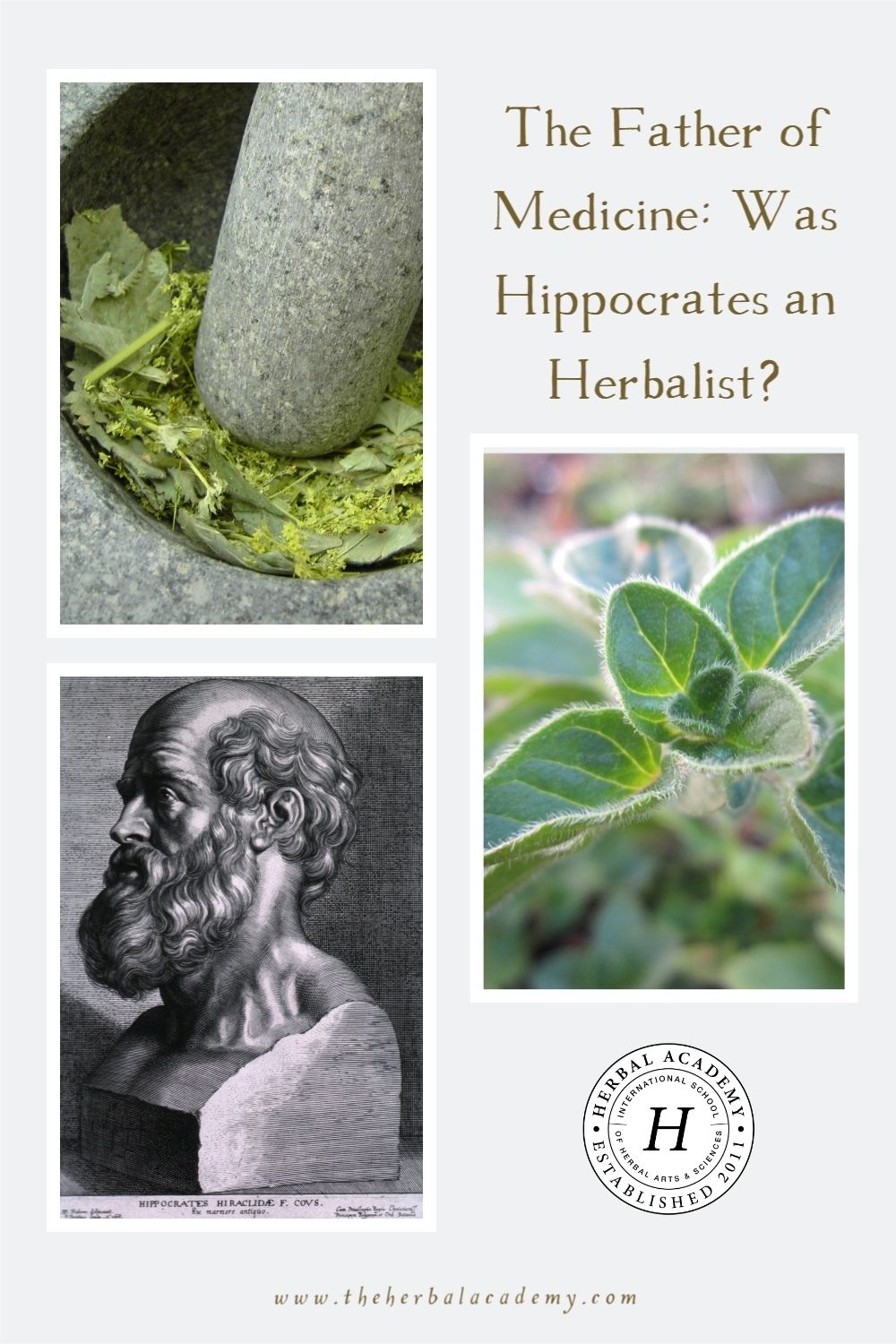
REFERENCES
Budge, E.A.W. (1978). Herb-doctors and physicians in the ancient world: The divine origin of the craft of the herbalist. Ares Publishers.
Evans, S. (2015). Ancient history? Lessons from Hippocrates’ use of plants. Journal of the New Zealand Association of Medical Herbalists, Summer 2015, 6-9.
Hippocrates (1931). Hippocrates: Volume IV: Nature of man (W.H.S. Jones, Trans.). Loeb Classical Library. (Original work published ca. 185 BCE).
Joly, R. (1978) Hippocrates. Book XIII: De haemorrhoidibus. Les Belles Lettres.
Martí-Ibáñez, F. (1961). A Prelude to medical history. MD Publications, Inc.
McKeown, J.C. (2017). A Cabinet of ancient medical curiosities. Oxford University Press.
Merriam-Webster. (n.d.) Herbalist. https://www.merriam-webster.com/dictionary/herbalist
Nutton, V. (2013). Ancient medicine. Routledge.
Richardson, S. (1999). Libya domestia: Libyan trade and society on the eve of the invasions of Egypt. Journal of the American Research Center in Egypt, 36, 149–164. https://doi.org/10.2307/40000208
Totelin, L. (2009). Hippocratic recipes: Oral and written transmission of pharmacological knowledge in fifth-and fourth-century Greece. Brill.
Touwaide, A., & Appetiti, E. (2014). Food and medicines in the Mediterranean tradition: A systematic analysis of the earliest extant body of textual evidence. Journal of Ethnopharmacology, 167, 11-29. http://doi.org/10.1016/j.jep.2014.10.035








